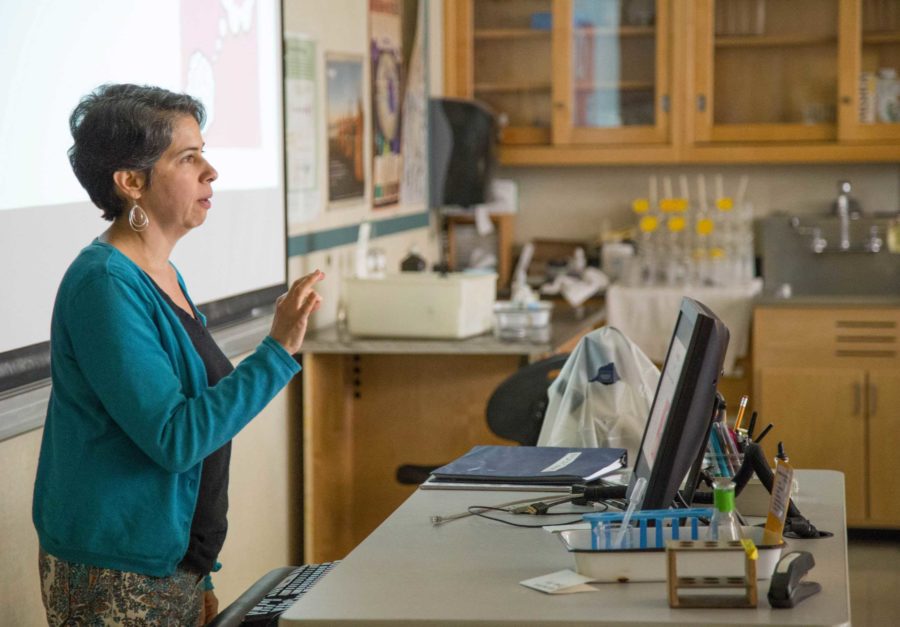A new semester may bring students high ambitions, hopes for straight A’s and the opportunity to turn past mistakes around.
One week later reality can strike disguised in the form of used textbooks, mountains of assignments and pages upon pages of illegible notes scribbled furiously in an attempt to record all of the information instructors cover.
Even with all the necessary information to pass the course readily available, and despite instructors’ thorough coverage of the material during lectures, it may still prove difficult to retain it all. This may be due to a lack of the essential study skills necessary to achieve success in college; it’s time to learn how to learn.
According to a study from New York State University at Cortland, students have a relatively even split between visual, auditory and kinesthetic learing preferences, with still a little room for students with mixed preferences.
A visual learner would greatly benefit from power points, overheads, and book assignments. Those with auditory preferences would excel from heavy lecture and class discussions, while kinesthetic learners may appreciate more “hands-on” experience with the material.
These findings are not “one size fits all,” as the study further divides preferences into various scenarios including speaking, reading, studying and even socializing.
The student services center at Plover Hall offers free evaluations, workshops and seminars to help students gain the skills necessary to be an effective learner and achieve academic success. The Disability Resource Department specifically helps students identify and overcome learning obstacles they may not even be aware of.
The internet also has an abundance of online tests which allow students to analyze and assess their individual learning styles. Although these tests may lack the impartial personalization necessary to truly benefit students in a specific classroom setting, they do provide an adequate basis for self-evaluation.
Students who still have difficulty processing information after assessing how they learn should talk with their instructor. The absence of adequate collegiate study preparation has not gone unnoticed by the junior college faculty and administration. Many instructors even have specialized training in various teaching methods for the exact purpose of methodized instruction.
Abigail Zoger, an instructor in the Life Sciences Department, offers two different workshop times outside of her regular class schedule. She specially designed the workshop to address necessary study skills for her course of instruction and uses course material for specific examples. For instance she covered a hands-on pliable wire with assorted beads, all representative of amino acids forming a protein chain.
“It is part of my job to teach students how to study,” Zoger said.
She bent the wire and enthusiastically explained how the shape of the protein structure factors into its chemical stability. She would do this for a student with kinesthetic learning preference, and present the material in a way appropriate to the learning method.
According to Zoger’s Sabbatical Leave Report, in which she outlines her investigative findings on the cognitive science of learning and new models of teaching science, metacognition is an immensely important factor in learning. “Metacognition is the ability to assess our own thinking, and in this context our own learning,” Zoger said.
Essentially, thinking about thinking enables us to assess our strengths and weaknesses and address them appropriately. Zoger suggests a helpful way to assess one’s own thinking: “Set specific goals, create a plan to achieve that goal, assess how well you met that goal, then reevaluate that goal and repeat,” she said.
For some, institutionalized education simply doesn’t fit into their lives as it does for others.
Wanda Burzycki, Instructor and department chair of the College Skills/Tutorial department, says that some students enroll who are not adequately prepared to study in a collegiate atmosphere; they need to live life, travel, experience the world, grow and mature on their own before deciding if college is even the right choice for them.
“We offer second, third, fourth, even fifth chances,” Burzycki said.
College can be a challenge. Though it is not custom tailored to fit everybody’s individual needs, students can take it upon themselves to use SRJC resources and get the most from their learning experience.



